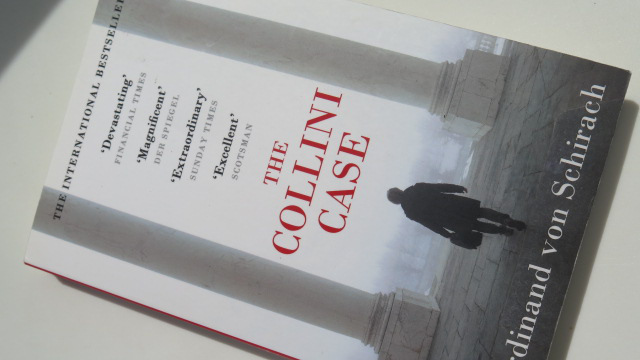
In 2002, a wealthy 85-year old industrialist called Jean-Baptiste Meyer is murdered in his Berlin hotel. A sixtysomething Italian, Fabrizio Collini, is responsible. After 34 years’ blameless service as a toolmaker at the Daimler factory, he has snapped. Meyer is shot four times in the back of his head. It is an appalling crime which Collini admits at once. There is a lot of claret: ‘His footsteps could be traced back over the marble paving of the ground floor, in the lift, and all the way back to the suite.’ One of the four bullets took half of Meyer’s face off, after which Collini turned the lifeless body over and ground his heel into the dead man’s head ‘while blood and brain matter spurted over his trouser leg, the carpet, the bedspread’. Anthea Bell, who translated Ferdinand von Schirach’s novel, must have been kept busy with the technical terms, particularly during a grisly and explicit autopsy scene. Anyway, the point is, the police have their man. This means The Collini Case is a whydunnit, with a healthy dose of court procedural about it. Young defence lawyer Caspar Leinen eagerly takes on the brief – before realising (insert the German for doh! here) that he knows the victim by another Christian name: Hans Meyer. Germany is a country understandably desperate to confront its awful past in a clear, measured, coherent way. Doing the maths, Meyer would have been an adult during World War Two, while Collini was a child: the spectre of Nazism hovers near the narrative – although perhaps in slightly unexpected ways. Caspar does his Perry Mason bit to uncover exactly what Collini’s motivation might be. The limits of the law in providing justice are laid bare as the case unfolds. Von Schirach is a noted defence lawyer whose sideline is writing, so you have the sense of being in good hands here. The authenticity of the legal bits is not the problem; instead, there is a mystifying absence of jeopardy when it comes to the survival of Leinen’s pre-existing relationship with Meyer’s beautiful (of course), complex (naturally) granddaughter, Johanna. Her continued involvement with Leinen is never seriously in doubt, despite everything. She is nothing if not pragmatic.
Advertisements Share this:




